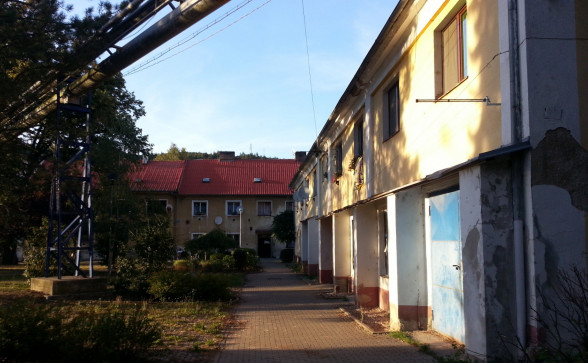CESCAME zve na sérii tří přednášek o městě, udržitelnosti, městských praktikách a politikách, každodennosti, neformalitě a jejich potenciálu k podpoře sociálních změn. Na první přednášce náš host Örjan Sjöberg promluví o vzájemných vztazích mezi jednotlivými Cíli udržitelného rozvoje a potenciálními riziky a konflikty mezi nimi.
Centrum pro studium sociální změny a materiálního prostředí zve na sérii tří přednášek o městě, udržitelnosti, městských praktikách a politikách, každodennosti, neformalitě a jejich potenciálu k podpoře sociálních změn.
Přednášet u nás budou Örjan Sjöberg (14. červen), Alexa Färber (20. září), a Lela Rekhviashvili (12. říjen). Přednášky budou probíhat v anglickém jazyce, abstrakty tedy nepřekládáme.
První přednáška proběhne 14. června 2022, 15:30 - 17:30, v Sociologickém ústavu AV ČR, v místnosti 207 a na Zoomu. Na událost je třeba se registrovat (i v případě osobní účasti kvůli omezené kapacitě místnosti), odkaz na registraci naleznete níže. Na přednášku navážeme společnou diskuzí.
Örjan Sjöberg (Stockholm School of Economics) přednese příspěvek z výzkumu, na kterém pracuje společně s Lin Lerpold:
The missing link between climate action (SDG 13) and reduced inequalities (SDG 10): the urban dimension
A considerable and growing body of research focuses on the interlinkages between the Sustainable Development Goals (SDGs) under the United Nations Agenda 2030. One consistent finding is that synergies and trade-offs across the SDGs appear to exist. Although there is little agreement just how these synergies and trade-offs align, it is indicative of a need to think through that interdependence. This is also true of the interconnectedness of different types of SDGs. Thus, climate and environmental sustainability and social sustainability are often theorised and empirically depicted as separate challenges. We set out to explore the trade-offs and suggest ways forward for a more holistic understanding. Unlike the rapidly expanding body of quantitative assessments, we focus on conceptual issues. We do so because data-based approaches do not only yield conflicting results but are typically not in a position to discriminate between them. Instead, starting from a main assumption under SDG 8, namely if the SDGs focused on the social world are to be met with a measure of success, economic growth has to continue but without it increasing the ecological footprint of humankind. For now at least, evidence of such decoupling is patchy at best. We therefore inquire into the possible risk of environmental goals and targets under Agenda 2030 might come in conflict with those that address social equity. We illustrate what this might imply with reference to sustainable urban development.
Formulář na registraci naleznete zde.






Facebook
X
Tweets by SociologickyNewsletter